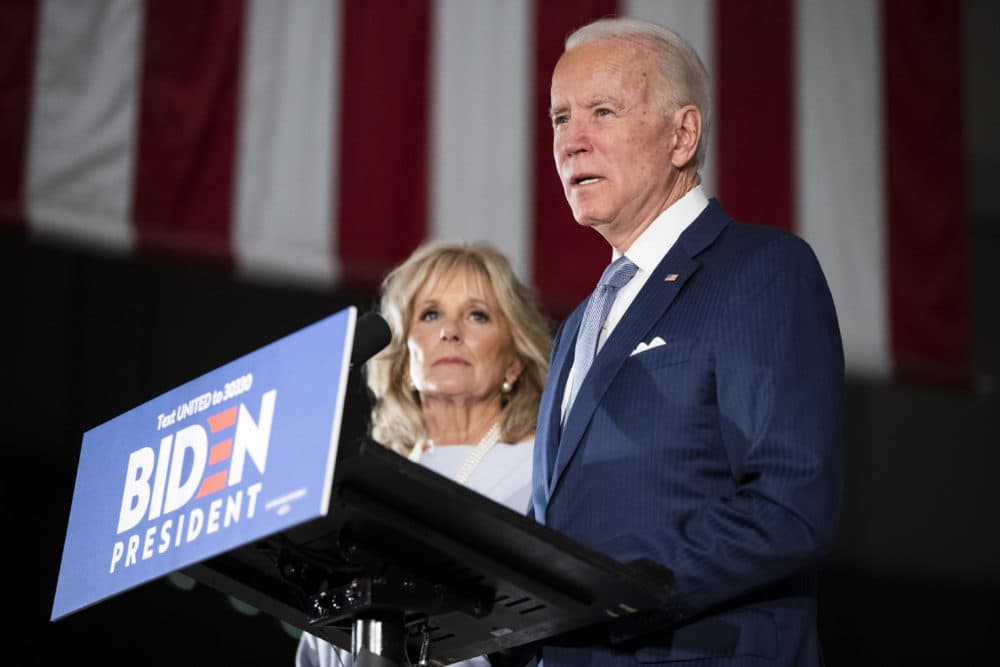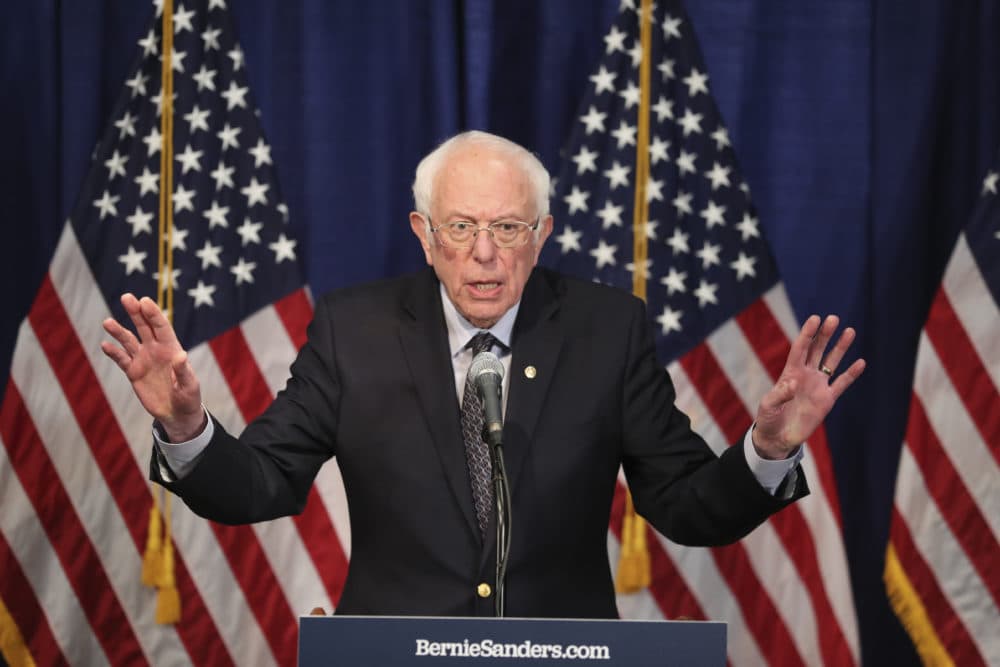Advertisement
Commentary
Where Sanders And Biden Agree, And Disagree, On Climate

“Not a single solitary scientist thinks it can work,” Joe Biden said about Bernie Sanders’ climate plan, suggesting that Sanders' timelines were unrealistically ambitious.
Sanders’ supporters responded by rounding up a gaggle of Ph.D.’s who offered their full support for his proposals, adding that his platform was not only realistic but necessary to avoid a climate catastrophe.
Since that dust-up in January, the coronavirus pandemic has seized the nation’s attention in a way the climate crisis never has. But unlike the coronavirus, which will run its course in due time, climate change will continue to undermine the planet’s ecosystems for generations. The gravity of the climate situation demands that voters take a close look at the candidates’ platforms.

Both Biden and Sanders would promptly rejoin the Paris Agreement and invest heavily in clean energy research. Both would aim to reach net-zero carbon emissions before mid-century, although Sanders’ plan proposes a substantially faster and more thorough elimination of fossil fuels. And both emphasize the social justice dimension of the problem, promising to create millions of jobs and ensure that the inevitable economic disruption of a comprehensive energy transition does not disadvantage the most vulnerable.
Indeed, the candidates’ climate agendas are both decidedly more progressive than anything previous administrations have proposed, including the Obama administration. If you could put left-to-right climate politics on a map of the United States, Sanders and Biden would be in San Francisco and Las Vegas, respectively, and Trump would be way back east in his Manhattan tower.
But there are some significant disagreements between the two candidates.
Nuclear technology
The clearest difference among Biden and Sanders is on nuclear technology. Biden views it as an essential zero-carbon energy source. He supports the development of small modular reactors, which are purportedly safer and less expensive than conventional nuclear plants.
Sanders rejects nuclear energy, citing the unmanageable toxic waste that it produces. Not only would he suspend the construction of new nuclear power plants, he would not renew the licenses of existing ones. Sanders calls nuclear power a “false solution” to the climate crisis, even though Sweden — a nation he often holds up as a model — gets 40% of its electricity from nukes.

Natural gas
Sanders calls for an immediate ban on fracking, the extraction method that involves injecting massive amounts of fluid deep into the ground to release gas and oil deposits. Widely acknowledged as the technology that triggered the boom in domestic production during the Obama administration, fracking is known to cause minor earthquakes and the contamination of aquifers.
Biden is not calling for a ban on fracking, at least not immediately. He wants tighter regulations on pollution from oil and gas operations, but his website does not mention fracking. And his climate advisor, former Department of Energy official Heather Zichal, is known to have had a lucrative relationship with the gas industry.
Carbon tax
Biden told the Washington Post he supports a carbon tax, which is consistent with making nuclear energy and renewables more competitive with fracked gas. Sanders has distanced himself from carbon pricing policies during this campaign, although he has been a proponent in the past. (Many on the left have concluded that market-based mechanisms for emissions reduction are politically unpopular and ineffective unless priced very aggressively.)
Finally, among various other differences, the candidates’ programs diverge widely on cost. Biden says his plan would cost $1.7 trillion over a decade, while Sanders estimates his at $16.3 trillion. Both would say the cost of inaction is far higher.

So, on the bottom line, who has the better plan?
Sanders’ platform is the full menu, a lavish four-course feast to satisfy the hungriest climate activist. Successful implementation of his plan would put the country solidly on track toward the fully decarbonized economy of the future. Its goals are in line with UN-IPCC assessments of what must be done to avert the worst-case climate scenarios.
Biden’s plan is more like political comfort food, prepared for consumption in the Pennsylvania suburbs as well as cities on the West Coast. A Biden administration would kick-start much-needed investments in new energy infrastructure and enable the United States to rejoin the world community in the fight against climate change.
Some observers in the progressive wing of the party (Naomi Klein, for example) find Biden frankly pro-corporate and not sufficiently radical.
But we should remember that much of what both candidates are proposing would require passing enormous legislative packages. The difference between what the two aspiring presidents could get past the courts and through Congress (especially if Republicans retain control of the U.S. Senate) is smaller than the difference between the proposals on their campaign websites today.
And if Trump is re-elected, well, I prefer not to think about that. The choice to be made next November is infinitely starker than the one to be made in the Democratic primary.
